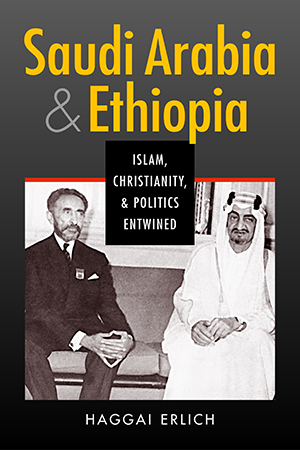What is the significance of Islam's growing strength in Ethiopia? And what is the impetus for the Saudi financing of hundreds of new mosques and schools in the country, the establishment of welfare organizations, and the spread of the Arabic language? Haggai Erlich explores the interplay of religion and international politics as it has shaped the development of modern Ethiopia and Saudi Arabia.
Tracing Saudi-Ethiopian relations from the 1930s to the present, Erlich highlights the nexus of concrete politics and the conceptual messages of religion. His fresh approach encompasses discussions of the options and dilemmas facing Ethiopians, both Christians and Muslims, across multiple decades; the Saudis' nuanced conceptualization of their Islamic "self" in contrast to Christian and Islamic "others"; and the present confrontation between Ethiopia's apolitical Islam and Wahhabi fundamentalism. It also provides new perspectives on both the current dilemmas of the Wahhabi kingdom and the global implications of the evolving Saudi-Ethiopian relationship.
Haggai Erlich is professor emeritus of Middle East and African history at Tel Aviv University.
"A comprehensive discussion of the ever-changing interplay between three cultural systems: the Christian-Ethiopian, the Saudi-Wahhabi, and the Islamic-Ethiopian.... It provides important insights into the religious dimensions of international relations and is an excellent introduction to the new modes of foreign relations that characterize global affairs in the twenty-first century."—John Voll, American Historical Review
"All university libraries."—Choice
"Provides all kinds of interesting insights and draws connections between Ethiopia and the Arab world that have been little pondered, with vital implications for the modern world.... Erlich adds insight, new dimension, and much clarity."—Charles W. McClellan, International Journal of African Historical Studies
"A scholarly, detailed assessment ideal for historians and anyone in search of a solid understanding of how Saudi-Ethiopian politics came to be where they are today."—Midwest Book Review
"A creatively conceived and significant work that deepens our understanding of the history of both countries, contemporary Africa-Middle East relations, and most originally, Muslim perceptions of Africa."—James Jankowski, University of Colorado
"This is not only a historical account, but one that brings the tension between Islam and Christianity in Ethiopia and its relation to Saudi Arabia up to the present. It is essential reading for those seeking an understanding of the role of religion in the interaction of these key countries in Africa and the Middle East."—David Shinn, George Washington University






